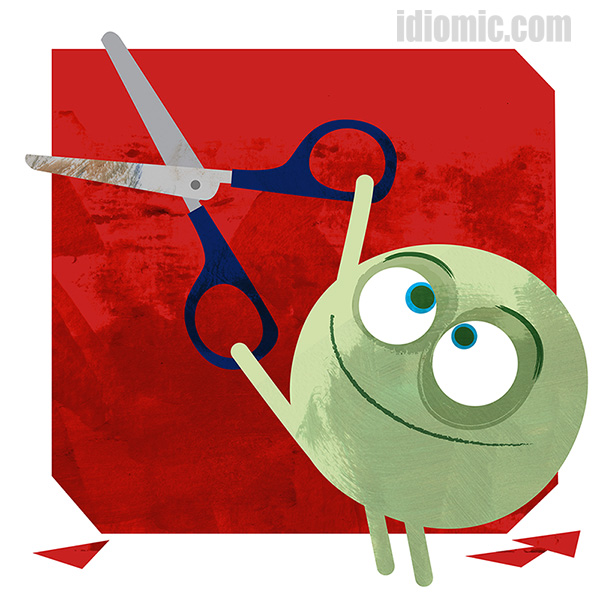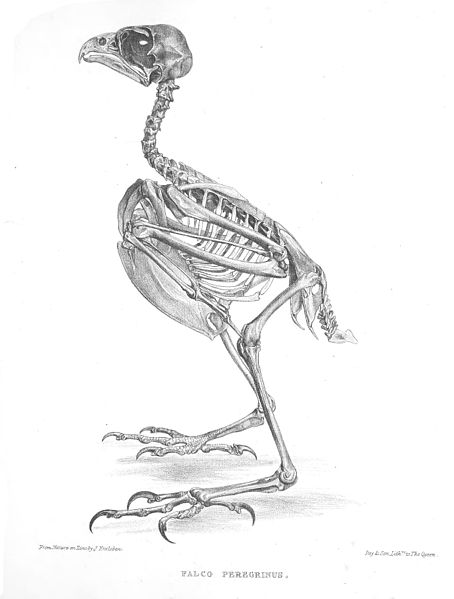Ah, deadlines. Without them, procrastination wouldn’t even exist, and streaming services like Netflix and Hulu would lose millions in revenue from students bingeing 6 hours of Breaking Bad before having to write a 45-page qualitative research literature review due in 12 hours.
As you can imagine, after working in the dissertation consulting business for over a decade, we’ve heard our fair share of interesting deadline stories. Students seeking dissertation help or thesis help will sometimes come to us at the zero hour before turning their work in. This can be a harrowing experience (and if this is you, and you’re reading this right now, please give us a call). However, despite the fact that working under immense last-minute pressure creates a lot of headaches (and usually a lot of errors and rewrites), many professional researchers and students keep putting themselves in this position–simply because they know of no other way.
Indeed, sometimes the hare-over-tortoise attitude has its advantages, and some students do work better in the pressure cooker–claiming that the rest and relaxation they allow themselves at the beginning of the project is worth the blood, sweat, and tears at the end. “Pressure makes diamonds,” you might say.
And, while we have seen a few students where this rings true, in the vast majority of cases, working at the last minute can result in disaster. In fact, even if you’re used to working under the stress of an impending deadline, it only takes one slip-up for what was once a workable routine to transform into a perfect storm–leaving you to ponder if that whole “dog ate my homework” excuse is really going to fly in your advanced statistical analysis online course. Sorry, professor! My dog furtively installed the WannaCry virus on my PC in the middle of the night and is holding all of my files for ransom! Uh-huh…Yes, you’re right…Okay, great. I’ll begin looking for a different school right away.
Naturally, there are ways to prevent this kind of embarrassing situation, and they don’t involve coming up with less fabular excuses–although having a few quality alibis in your backpocket is always a good thing for any working student…just saying. Excuses and requests for extensions are a post-failure necessity, and they don’t always work. Either because of habit or because of previous experiences with other teachers, many students will presume a leniency on the part of their professor that, when the chips are down, just isn’t there.
This can be a crushing blow, indeed, and it’s something we work to help students avoid at all costs. So, especially if you’re working with a major project like a thesis or a dissertation, it’s imperative to know the right way and the wrong way to deal with an upcoming deadline.
We have heard some pretty wild tactics from students whose journeys at the doctoral and masters level didn’t go quite so well. And, while these may be fun to hear about, we don’t advise you try any of these when working through your thesis writing. Use the precise way instead.
Bad Idea – The All-Night Caffeine Binger
This is, believe it or not, one of the more popular approaches among many of the students we help (before we advise against it, of course). These are the people that take Red Bull’s advertising just a little too seriously–assuming that a few heavy doses of caffeine, sugar, taurine, niacinamide, calcium pantothenate, and good old pyridoxine HCI will suddenly give them the magic ability to perform a statistical analysis of a full HCUP dataset using a logistic regression in SPSS before their deadline in eight hours.
Don’t get us wrong. We’re by no means anti-caffeine. We are but humble office analysts, and, without coffee and sugar, we revert to a primeval state of tooth & nail squabbles over who gets to use the copier next. Drink coffee, if you want. Chug that energy drink. But don’t think for a minute that you’re suddenly going to be imbued with godlike statistician prowess and a typing speed of 200 words-per-minute.
Also, what goes up, must come down. That caffeine binger will definitely help you for the first two hours or so, but once the effects begin to wear off, prepare to take the bullet elevator down. For instance, if you take a dose of caffeine that’s more than 200 mg you’re bound for the dreaded caffeine crash, which includes the following side-effects, according to Caffeine Informer:
- Extreme tiredness
- Inability to concentrate
- Irritability
- Dozing off
These don’t exactly sound like ingredients for writing an award-winning study. In fact, once the caffeine rush is over, you might be doing yourself more harm than good, as the quality of the work will only degrade with the onset of these symptoms.
“But I’ve got a solution!” you say. “Drink more caffeine.” And that would be a brilliant idea in a perfect world–where you could also eat as many pints of Haagen Daaz as you wanted without having to worry about needing a construction crew to use a crane to move you out of your apartment.
Indeed, while caffeine can be a great tool if used in moderation, its overconsumption can result in serious health issues–possibly even arrhythmia. No matter how important your paper on the pop-gothic aesthetic of early 2000s vampire films might seem, it’s not worth this risk.
We’ve even heard from some of our clients that they’ve resorted to taking prescription medication like Adderall in order to achieve a higher level of focus while on deadline. This is something we can’t advise against enough, as (while also resulting in a variety of crash-symptoms that are worse than those of caffeine) the common side-effects (COMMON) of using Aderall include loss of appetite, insomnia, anxiety, nervousness, headaches, nausea, and vomiting. Basically, you’re going to be an extremely focused sick person, tapping away at your keyboard and headed for an impending crash as you’re trying to complete your qualitative research. Don’t do drugs, kids.
Good Idea – Drink Responsibly and Start Early
Okay, spoiler. You’re going to see “start early” in this list a lot, and, while we know it’s a cliched response to addressing the deadline issue, it’s obviously worth stressing. But, more than that, if you’re relying on the myth that caffeine binges will turn you into a superhuman, you’re in for a big surprise.
Instead of relying on one or two wired nights to plow through the work you need to do, take some time to plan things out with a professional–someone who’s been in the trenches and knows how to handle their coffee during crunch time. You can talk to one of our dissertation consultants about the tactics they’ve used (chemical and non-chemical alike) to create a successful formula for doctoral and masters success.
Bad Idea – The Halfway Plagiarist
So let’s say that you’re already aware that a caffeine binge is not what stands between you and being an academic superstar. You’ve been there, done that, learning that Mr. Coffee is no excuse for a tutor when the project has come down to the wire. There’s no magic pill that is suddenly going to give you the tools and abilities you need to write a full-length masters or doctoral project fast and well. So what do you do?
Unfortunately, this is often where a lot of students will resort to an age-old tactic of deadline-doers everywhere, and that’s plagiarism.
If you didn’t already know, plagiarism refers to the use of someone else’s work without their express permission and passing that work off as your own without giving any credit. Among all of the academic missteps one can make, this is by far the most egregious, and, even more so than “Never Use Wikipedia,” constitutes one of the fiercest maxims in a professor’s rulebook.
If you’ve ever had a professor lecture you on plagiarism, then you’re probably aware of just how much of a bugaboo it is–and the consequences for breaking this rule are serious, without a doubt. However, in our experience, sometimes when students are sweating an upcoming deadline, they’ll try to cut a few corners–and they always think they can get away with it.
“I’m not going to really plagiarize,” they say. “I’m going to paraphrase.” What this means, typically, is that, rather than committing full-boar plagiarism (i.e., copying and pasting parts of someone’s work and trying to pass it off as your own), the student instead opts to take line-for-line work and then tweak it here and there so that it seems like its their own.
This is sometimes called a “thesaurus paper” in professors’ circles, as many students will just plug in synonyms so that their work isn’t found during a plagiarism check. For those not in the know, this seems like a foolproof way to skirt the system. After all, what better way to save time on composition than to use the vast resources of the internet to your advantage? And it’s true that the web has facilitated plagiarism by a great deal. However, it’s also done the same for plagiarism checkers. For instance, take the following excerpt on Nick Simmons, son KISS lead singer Gene Simmons and an alleged plagiarist:
Concerns were brought up in late February 2010 that Nick Simmons had copied character designs, fight scenes, plot elements, dialogue, poses, and expressions from professional and amateur artists, from both several published manga, the most notable being Bleach, and also art sites such as DeviantArt.
Go ahead and copy and paste this whole paragraph into Google’s search bar. What’s the top result? Yep, that’s where it’s from. Even though several words have been changed throughout, it’s not enough to completely fool Google. Furthermore, when instructors are checking for plagiarism in college papers, they’re using much more sophisticated and specialized software, like Turnitin, which is designed specifically to check for plagiaristic discrepancies. Conducting advanced qualitative research and analysis kind of makes you a pro when it comes to seeing patterns, after all.
So, even if a student has gotten away with plagiarizing (or partially plagiarizing) work before, now is not the time to start–especially if we’re talking about a thesis- or dissertation-length project. It may look like you’re saving yourself some time by borrowing some materials (and thus making your deadline). But just consider the time you’ve already sunk into your program. Depending on your level of graduate studies, it’s possible that you’ve already invested upwards of three, four, even six to eight years! Jeopardizing those years in an attempt to meet a brief window deadline is by no means a good trade.
Good Idea – Use a Dissertation Coach Instead
Again, start early. That said, if you feel like your deficient in certain areas (like writing and researching) you may be vulnerable to the temptations of plagiarism. However, given all of the severe risks we discussed above, it’s never a good idea to fall for this dubious practice.
Instead of borrowing other people’s work, do what enrolled to do in the first place: Learn! Even if you’re just a few weeks from an impending deadline, there’s always an opportunity to learn the skills that you’ll need for your work to be approved. It really just comes down to the availability of your professors, which is spotty at best–even during their alleged office hours. And then there are sabbaticals to contend with, other students’ needs, etc. By the time you get the chance to speak to the person you’re paying to teach you, it feels like a privilege–and it often comes too late. This is a nightmarish premise for anyone who needs extra care and attention to prepare for an upcoming project. Indeed, it’s the kind of thing that will make someone so desperate that they resort to a no-win last resort tactic like plagiarism.
However, you should know that there’s always someone out there who can help you with this kind of scenario. For instance, we can connect you with a dissertation coach on staff who can provide you with comprehensive assistance for everything you need. This can include one-on-one sessions and even templates of high quality academic work that you can use to learn from–as you approach your next assignment. This isn’t something to wait on–naturally. If you feel like you have a project coming up that seems above your head, give us a call, and we’ll be able to guide you through the process step-by-step so that your approval and graduation are guaranteed.
Bad Idea – The Bare Bones Completionist
Unfortunately, some people assume that when they have a project that’s 150 pages in length or so, merely finishing it is enough. For instance, if you’ve never done the Manitou Incline (basically, a giant mountain staircase with 68% gradients), just getting to the top is enough of an accomplishment to earn you that “I Survived the Manitou Incline” t-shirt you spied in the local gift shop. You know, the one next to the store that sells Christmas chotchkies and the other one with the bearded man peddling glassware, knives, and samurai swords (why does every mountain town have these things?).
Anyway, in this case, mere survival is not enough. Just because you’ve never done something of this magnitude before doesn’t mean that you can justify settling for a participation ribbon. No one’s going to give you a pat on the back for turning in a 150-page dissertation that’s been slopped together without any polish or quality checks. However, this is any easy trap for many students to fall into as they’re contending with an impending deadline. You don’t think you need any thesis help. It’s a full-steam ahead psychology that leaves students in a better position than the caffeine binger or the plagiarist discussed above–but there are still numerous drawbacks.
For instance, the bare bones completionist may indeed get the work done and get it in on time. But it will be an absolute mess and won’t be reflective of the standards of, say, a masters or doctoral program, which, needless to say, are fairly high. Basically, it’s like you’re a restaurateur and your customer (aka, your chair of mentor) has ordered a medium-rare steak (hmm, an aristocrat), but, even though you served his meal before he became too impatient, what you’ve given him is a dollar store frozen rib-eye (yes, that exists; we don’t recommend it). Now, what tends to happen in this situation is exactly what you’d experience with your academic project–i.e., I’m sending this back to the kitchen. Please make me a better, different steak from scratch. Also, I want free dessert and a t-shirt that says, “I Survived Eating Dollar Store Steak.”
What this translates to in the real world is months and months of wasted time, as you’re essentially going to have to write two (or even three) entire projects to make up for all your shambolic (albeit, completed) work. Furthermore, in our experience, many universities don’t exactly discourage this type of system either, since having you redo the work over and over again will always result in more time and tuition spent on your end–and, in this case, they’re going to be completely justified in making you wait (and pay) more, because they can always cite the poor work you’ve submitted as the reason.
You would be surprised how many of our clients reach out to us to help them with a project that’s in its fourth or fifth iteration. What’s more, many of these students will assume (and they’re probably being told this) that, for instance, doing your thesis writing over and over again is just a natural part of the process, when this couldn’t be further from the truth. Revisions and edits are always going to be required, true. But having to conduct a complete overhaul of your entire project multiple times is never a natural part of the process. It’s the kind of time vacuum redundancy that should be avoided at all costs.
Good Idea – Work with an Editor
Being a bare bones completionist isn’t the worst way to cope with a deadline. Indeed, sometimes the mentality of “just get it done” can be used to overcome writer’s block and thus preclude the situation that many of the night owls and plagiarists find themselves in at the last minute. However, when working this way, it’s always helpful to have someone working alongside you to pick up the pieces and point you in the right direction when necessary.
Indeed, most universities recommend that you show your work to a qualified editor at multiple stages throughout the composition of a longform project. An editing service helps to guarantee that you won’t have to redo anything after you’ve completed the full manuscript. Additionally, as is the case with most longform projects, even if your content is en pointe, it’s very likely that grammar, style, and citation formatting have fallen by the wayside as you focused on completing the paper. This is, of course, totally understandable, given the scope of your project. Here, too, a dissertation editor will be able to correct all of the trivial errors relating to typos, formatting, etc. so that nothing, no matter how small, stands between you and your graduation.
If you think you need some help with your editing ahead of a major deadline, feel free to call us anytime or email editing@precisionconsultingcompany.com, and we’ll connect you with one of our best.
For other tips on editing services, formatting, and anything else that can help you meet your deadline with ease, visit our Dissertation Editing page. Here at Precision, we offer numerous forms of student and researcher aid, including help with quantitative and qualitative data analysis, which are indispensable in completing work on schedule.
Just give us a call anytime at 646.553.4730 or email us at info@precisionconsultingcompany.com for some one-on-one help with a dissertation consultant, a thesis writer, or even a statistician. Our experts in statistics, literature, and qualitative research and analysis will be happy to assist, whether it’s through an editing service or through a qualitative analysis of your current topic to find relevant sources that we can use to render dissertation help. Basically, think of it as having your own private dissertation coach, free for consultation anytime you need it.
References
- Caffeine Hangover and Crash: What It Is and How to Avoid It. (n.d.). Retrieved from https://www.caffeineinformer.com/caffeine-hangover-caffeine-crash
- Nick Simmons. (2018, July 14). Retrieved from https://en.wikipedia.org/wiki/Nick_Simmons
- Setness, M. (2016, November 08). Netflix & College Students: A Binge Affair – Madison Setness – Medium. Retrieved from https://medium.com/@m.setness/netflix-college-students-a-binge-affair-6cb23967c484
- Speech Anxiety. (n.d.). Retrieved from http://www.speaking.pitt.edu/student/public-speaking/speechanxiety.html
- WannaCry ransomware attack. (2018, July 18). Retrieved from https://en.wikipedia.org/wiki/WannaCry_ransomware_attack






